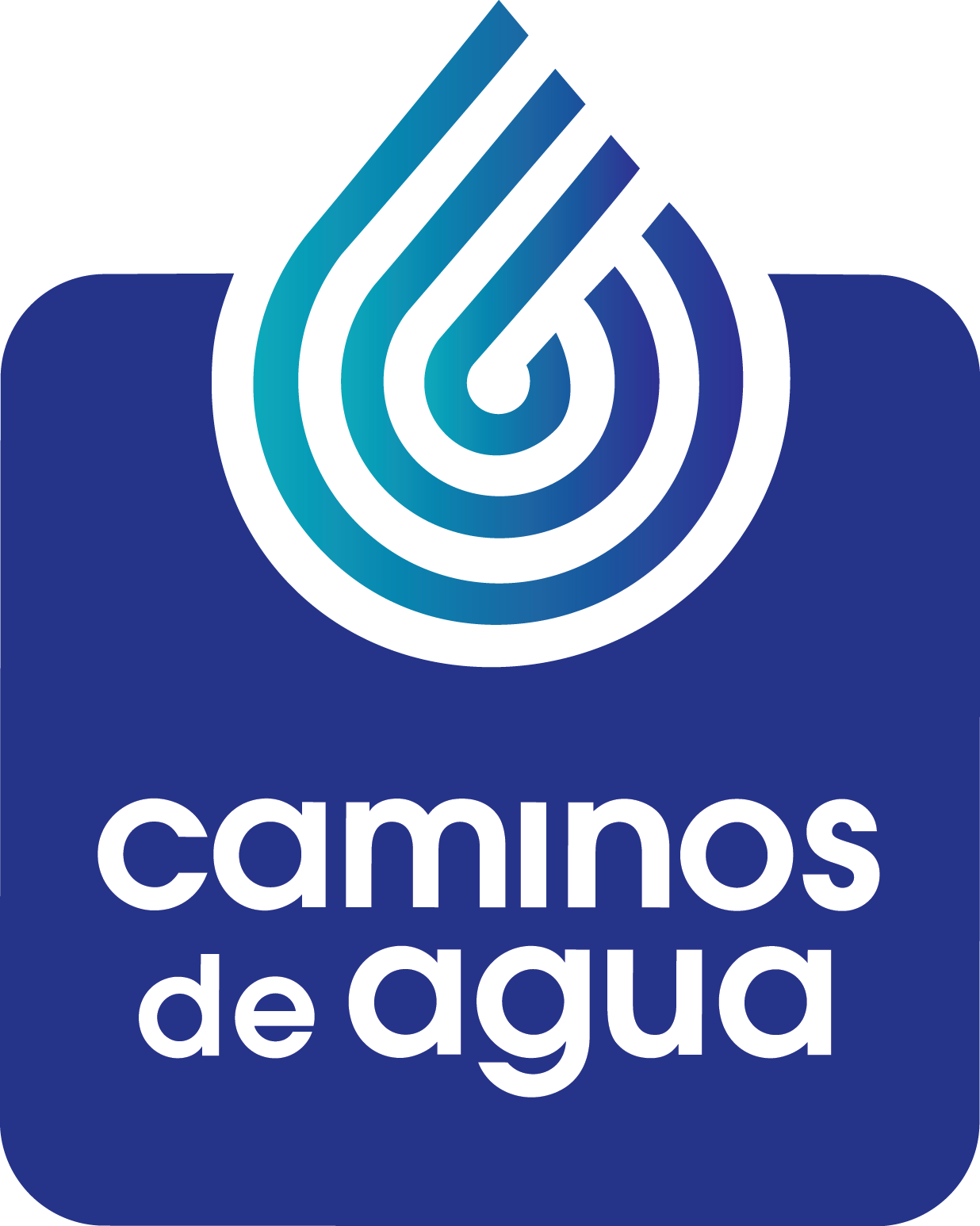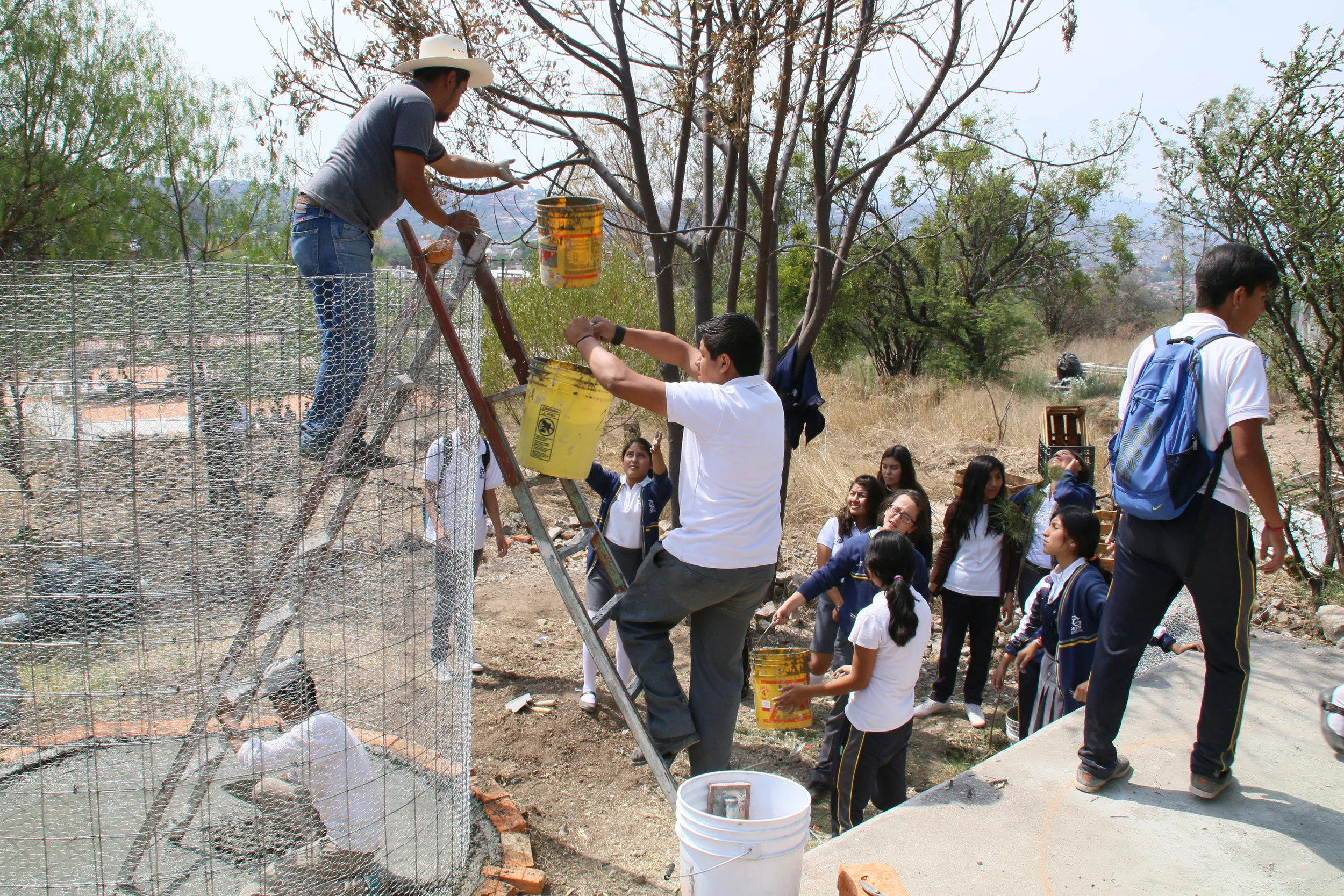Organizing to provide safe drinking water in the community of Salitrillo in San Miguel de Allende
We first got to know Salitrillo in 2019. After working together for 3 years, helping provide educational programing, technical trainings, and after numerous community meetings,, today the community has an organized committee, driven by local mothers, who helped facilitate the construction and on-going management of a large, 20,000-liter rainwater harvesting system in the community's elementary school as well as37 Rainwater Harvesting Systems, with 5,000-liter capacity, installed in local family homes. Now, new families from Salitrillo and other nearby communities are interested in rainwater harvesting for human consumption (drinking and cooking water). Approximately 90 children are now drinking safe water, preventing serious diseases such as dental and skeletal fluorosis and other developmental and learning disabilities caused by the excessive levels of arsenic and fluoride in their well water. Forty mothers are also deeply aware of the water situation in their community and the greater watershed region. , In fact, the educational workshops provided to the new community participants were designed and taught directly by the women that make up the organizing committee themselves, with support and materials from Caminos de Agua.
To learn about the challenges faced by the community, Caminos de Agua, and the other key actors who helped create more than 200,000-liters of safe rainwater storage capacity, read the story here.
Read More
A journey towards safe and healthy drinking water: Los Ricos de Arriba
A dream came true. After years of research, as well as recent joint sessions to explore forms of horizontal social participation and community training, our Groundwater Treatment System (GTS) project is finally up and running with the leadership of 10 community women, representing more than 20 participating families, from the community of Los Ricos de Arriba, SMA. This challenging process has involved a lot of energy as it is the first of its kind and it's intended to be self-managed by the community itself. We have made agreements with the community committee of co-responsibility with a vision to expand this model throughout our watershed. In the community of Los Ricos, this work triggered greater water awareness and impact; the participating residents organized to impact 15 additional families to install 5,000-Liter capacity domestic rainwater harvesting systems. This dream, thanks to the community of Los Ricos, is only the beginning of something greater.
Read More
The Story of Juana
Juana Reyes Bocanegra and her family live in the ranching community of La Luz located in a remote area between San Miguel de Allende and Dolores Hidalgo. Having been born and raised there, she is keenly aware that community members have always battled for access to the dwindling supply of water.
Read More
Working and singing together: communities unite to celebrate 64th rainwater harvesting system with Caminos de Agua
Dozens of members of the United Communities for Life and Water ('CUVA' in Spanish) coalition gathered together on September 15th in San José del Carmen to celebrate the completion of 15 rainwater harvesting systems in eight different communities with Caminos de Agua since July of this year.
Read More
Caminos de Agua and Casita Linda join forces
Casita Linda and Caminos de Agua have joined forces to work with the community of Palo Colorado to build six large-scale rainwater harvesting systems in five new homes built by Casita Linda as well as one in the community’s elementary school. The 12,000-liter capacity cisterns, combined with ceramic water filters, ensure that families and students will have access to safe and healthy drinking and cooking water year-round.
Read More
On our way to one million liters of safe and healthy drinking water!
This report was written originally for our Global Giving campaign. To date, we have raised $23,434 raised of our $31,060 goal.
Read More
Local high schoolers get their hands dirty learning about water issues
Caminos de Agua recently completed a three-week educational module with 99 students at CBTis no. 60 school in San Miguel de Allende. The program was funded by Lloyd's of London and included both theoretical and practical components. The students spent three days in the classroom learning about local water issues.
Read More
Cycling for water in the La Onza community
After several weeks of design and two days of installation in the field, the community of La Onza can now pump water directly from their shallow well into a nearby tank. Water in the community of La Onza is very scarce in general and water in their deep well is too contaminated with arsenic and fluoride to be safe for consumption (see Caminos de Agua’s water quality monitoring map for details).
Read More
Student-driven construction of rainwater harvesting system
Local high schoolers take water issues into their own hands... Caminos de Agua, in partnership with El Maíz Más Pequeño A.C. and Fundación Gonzalo Río Arronte, ran a workshop to construct a ferro-cement rainwater harvesting cistern at Bachillerato SABES Cerritos school in Guanajuato, over 5 days in February 2017.
Read More
1 million liters of safe & healthy drinking water in 2017!
The letter that follows is the quarterly report that Caminos submits to the Globalgiving Platform. Read the original report and see more photos here.
Read More
Celebrate with us: year in review ~ 2016
As 2016 draws to a close, Caminos de Agua is proud to share our Year in Review Report. Take a moment to celebrate with us our impact on safe, healthy and sustainable water solutions.
Read More
San Luis de la Paz: six new cisterns to close out 2016!
Caminos de Agua led a training at the end of November for four rural communities in San Luis de la Paz (Llano Verde, Arenal de Arriba, La Escoba, and Arenal de Abajo). Some of these communities have almost no access to water (only 200 liters once or twice a month).
Read More
Urban rainwater harvesting - workshop & installation at Vía Orgánica
As you may know, in 2016 Caminos de Agua expanded its water quality monitoring campaign to include urban areas of San Miguel de Allende. In conjunction with Texas A&M University and the University of Guanajuato, we performed hundreds of tests in 27 different sites throughout the urban center.
Read More
Rainwater harvesting project: capacity training in San Luis de la Paz
Rainwater harvesting represents an inexpensive, easy to use, and sustainable water solution for local communities. Rainwater harvesting means that we are not extracting water and that means we are not interrupting the natural hydraulic cycle. So, it is a great solution for water access in the Independence Watershed where Caminos de Agua works.
Read More
Small-scale rainwater harvesting workshop Los Lopez. Using new educational materials
On Monday, October 17th, Caminos de Agua piloted a new small-scale rainwater harvesting workshop in the community of Los Lopez. Dylan Terrell and Saul Juarez started the workshop with a presentation regarding regional water quality and access problems and related health issues as well as the concrete water problems happening in the community itself. Additionally, the importance of rainwater harvesting was discussed.
Read More
Blessing 10 new cisterns in San Antonio de Lourdes: a reflection by Chantal Kronenburg
San Antonio de Lourdes is a rural community that is a part of San Miguel de Allende. Like many of the 2,000 villages in the watershed, San Antonio's population is small, totaling about 370 people. Caminos de Agua built three (3) rainwater harvesting systems in 2015 at the village's church, elementary school, and kindergarten. This summer, Caminos de Agua started a new rainwater harvesting project in the community in conjunction with Engineers without Borders-University College of London.
Read More
NY Times, Caminos de Agua & water
Thanks to the passion of local advocates, supporters, university partners and other collaborators, The New York Times featured the challenges of our local water situation in Guanajuato, Mexico in an article today. About a year ago, San Miguel de Allende-based photojournalist, Janet Jarman, contacted Caminos de Agua for story ideas to document climate change. We discussed our work and Janet spent a couple of days documenting Caminos' work in local communities with rainwater harvesting systems.
Read More
Putting into practice new biochar applications
On May 2, 2016, Caminos de Agua Executive Director Dylan Terrell installed a biochar system in a rural elementary school in Vergel de Guadalupe. This system deals with a persistent problem in many communities. The local water authorities install chlorination systems to treat water, but community members dislike the taste and then avoid drinking water. This system improves the taste and creates clean, safe water. He learned this technology from Aqueous Solutions in the January Biochar Water Filtration Course that he attended in Thailand.
Read More
San Antonio de Lourdes - October 2015
San Antonio de Lourdes has had their community well collapse twice over the last 20 years. Today, there is no consistent water access, and members of the community must travel to neighboring ranchos and communities to receive water. Caminos de Agua tested sites close by San Antonio in 2012 and found some of the highest levels of arsenic and fluoride contamination in the region. Consequently, the community was very excited and involved in the rainwater process.
Read More
Las Adjuntas de San Jose, Los Cuates, & Las Palomas - September 2015
In the summer of 2015, Caminos de Agua partnered with the San Cayetano Community Center, CODECIN, and the communities of Las Adjuntas, Los Cuates, and Las Palomas for a rainwater harvesting project in communities that had no reliable water access. In total, 10 rainwater harvesting cisterns with integrated first-flush systems - built by the communities themselves - and 27 ceramic water filter systems were installed.
Read More








